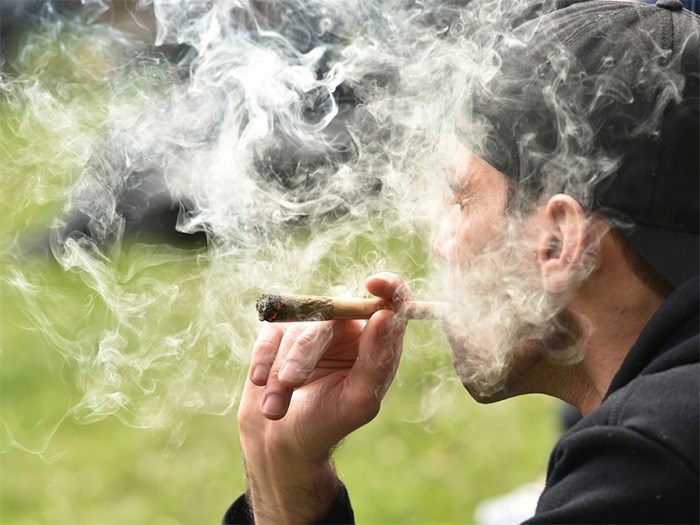Burnaby teachers won’t be lighting up on their lunch breaks after recreational marijuana becomes legal next week – not if they don’t want to get in trouble with their principals.
Although recreational pot will become legal on Oct. 17, teachers won’t be allowed to come to school impaired, any more than if their drug of choice was alcohol, according to Richard Per, assistant superintendent in charge of human resources.
 Sunset Beach 4/20 2018. Photo by Dan Toulgoet
Sunset Beach 4/20 2018. Photo by Dan Toulgoet
“We don’t allow people to come to work under the influence of alcohol,” he said. “We won’t allow people to come to work under the influence of marijuana. If someone were to smell of alcohol at work, that would obviously be a problem. If someone were to smell of marijuana at work that would obviously be a problem.”
Even a teacher who’s had only one beer at lunch currently risks getting sent home, Per said, and the same will be true of marijuana.
“We would want to believe (they’re not impaired), Per said, but we don’t know that, so we would always have to err on the side of caution for the safety and the trust and security of students.”
And having a medical marijuana prescription won’t be a free pass either.
“Our line is one of impairment,” Per said. “If you have a prescription for medical marijuana, that may be one thing, but, if the medical marijuana you’re using is causing any kind of impairment, then the district wouldn’t be able to accommodate that. We would actually have to do inquiries with the doctors that were involved.”
Legalization won’t change much for students in local schools either, according to managing director of safe and caring schools Sue Dorey.
Recreational use will still be illegal for anyone under 19, and existing policies and the district’s Code of Conduct already prohibit intoxication, impairment, smoking, vaping and drinking on school property.
But school officials will use legalization as a chance to educate students and parents about cannabis and the new law, Dorey said.
“There’s a lot of misinformation out there about what it means,” she said.
One myth the district will try to combat, according to Dorey, is that “natural” and “legal” mean “harmless.”
She pointed to concerns about the effect of marijuana use on the developing brain.
“The age is there for a reason,” she said. “It does have a different impact.”
Some students also seem to be unclear about what the medicinal use of marijuana at school entails, according to Dorey.
“I don’t know that they understand all of the pieces that have to be in place,” she said. “They can’t claim to have marijuana for medical use without some really clear checks and balances, like the doctor has made a recommendation and that we’ve checked that out.”
The school district is also using legalization to educate parents.
Even those who smoked in high school may be behind on the latest research and trends, like edibles, vaping and new strains, according to Dorey.
“Back when we were in school, marijuana was different,” she said.
For more information about cannabis legalization and what it will mean to Burnaby’s students and schools, see the district's FAQ page on the subject.



